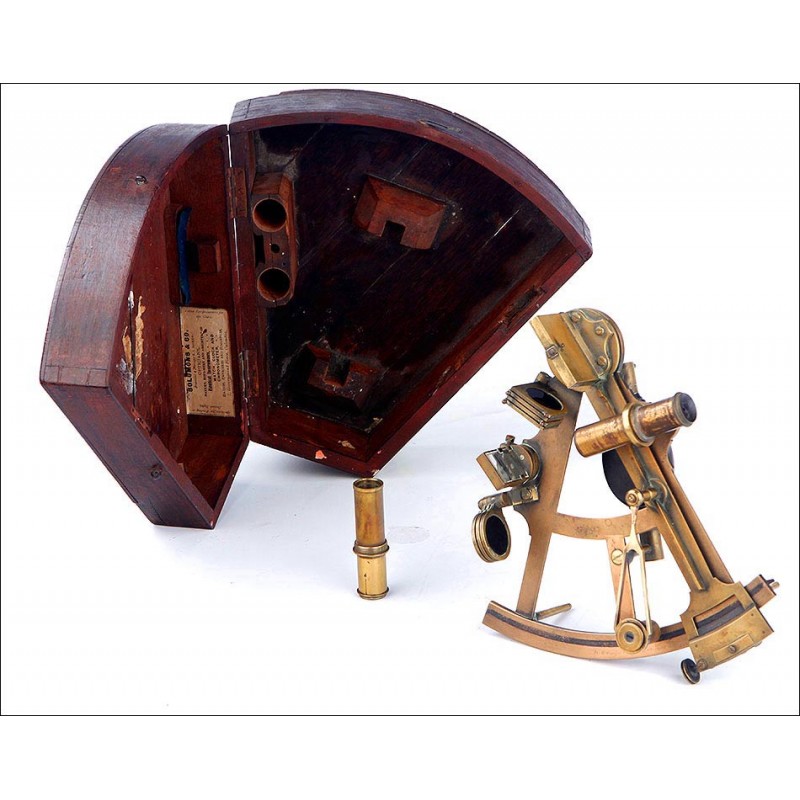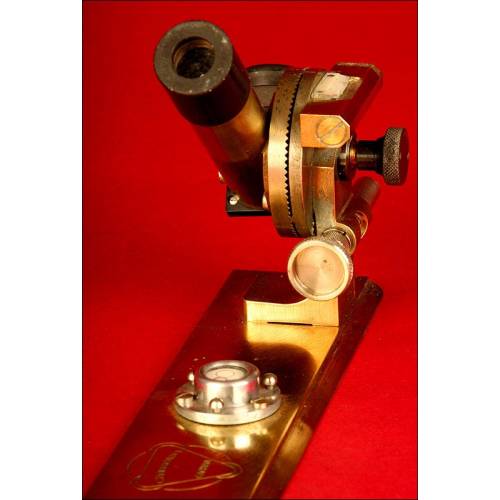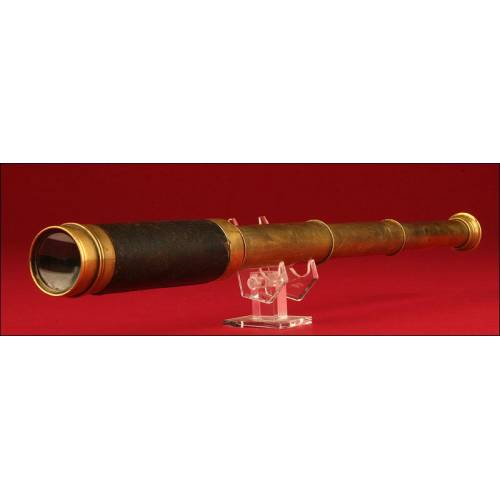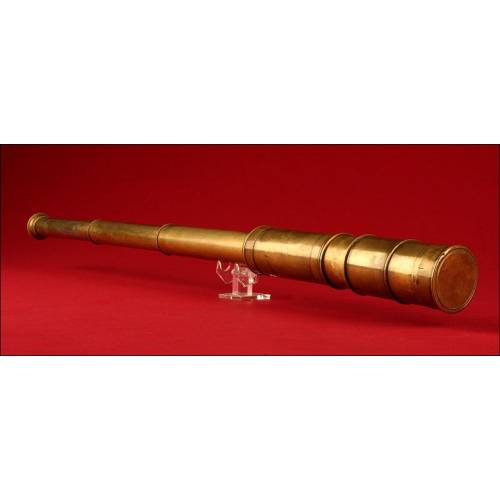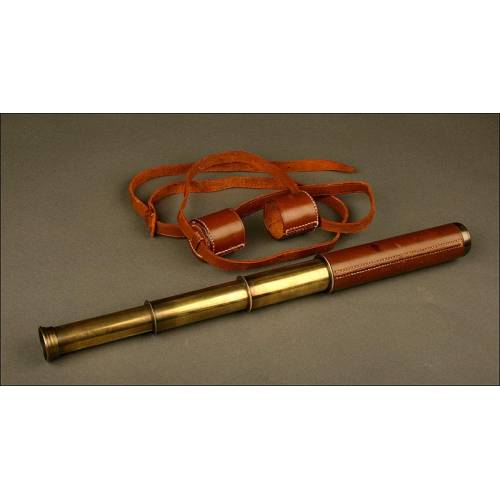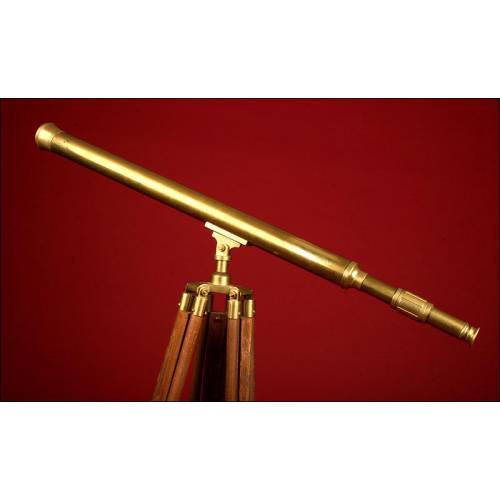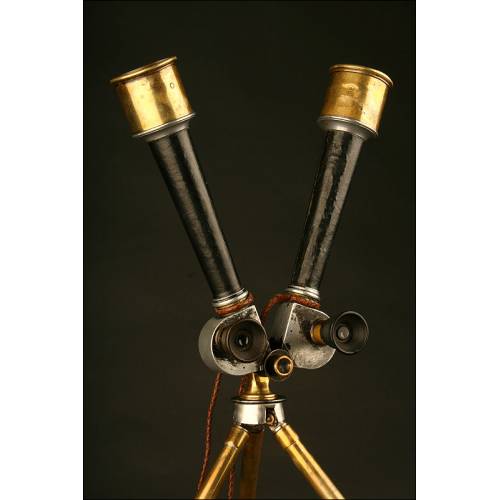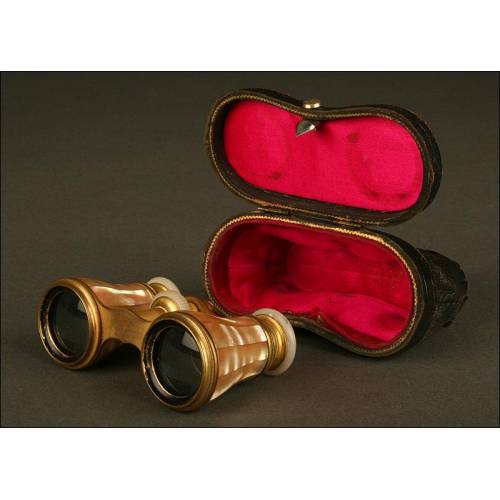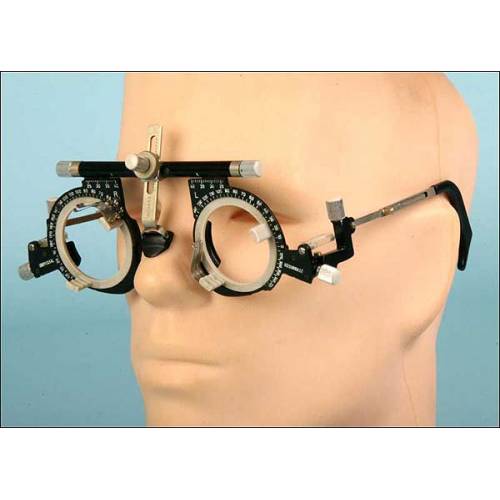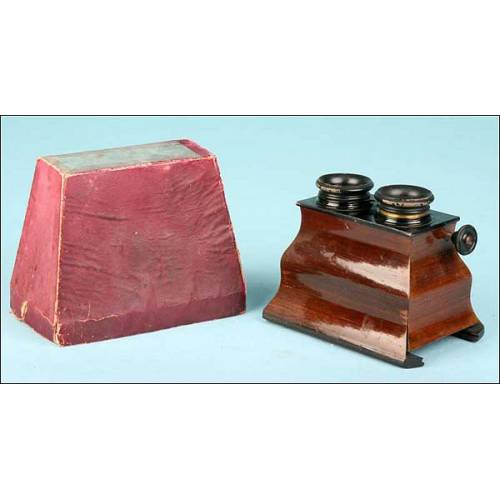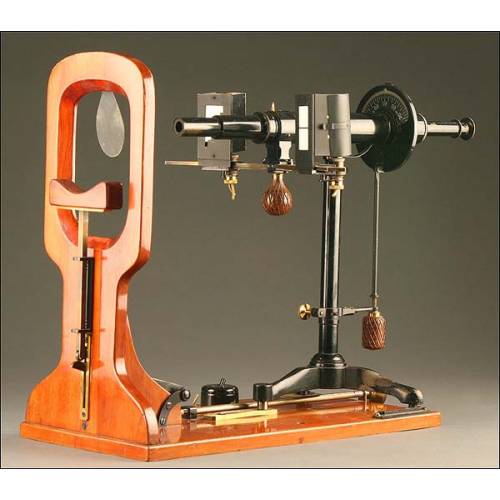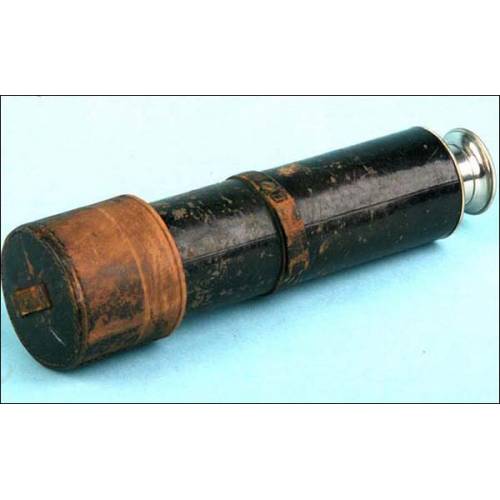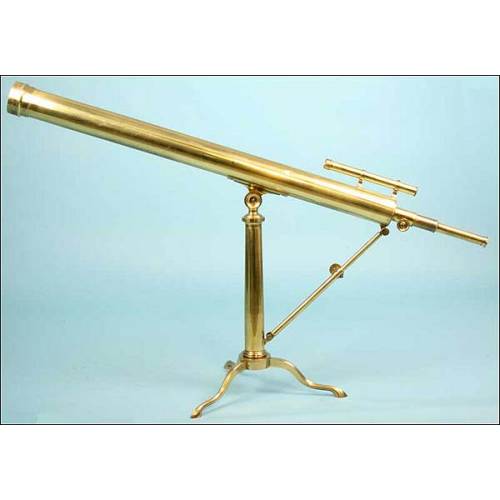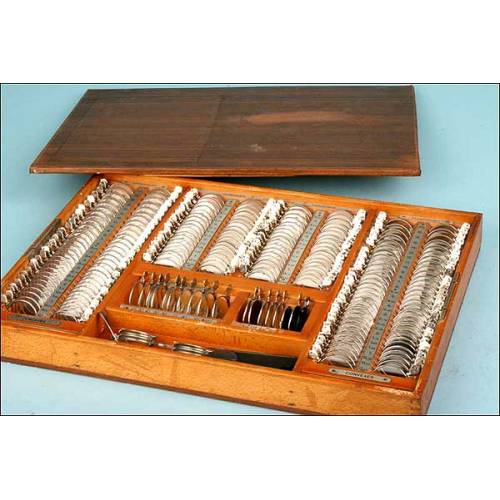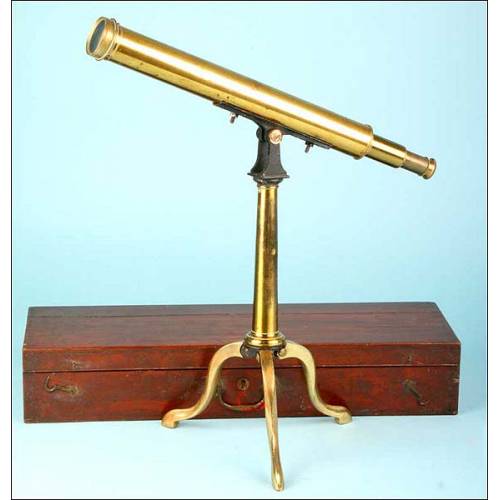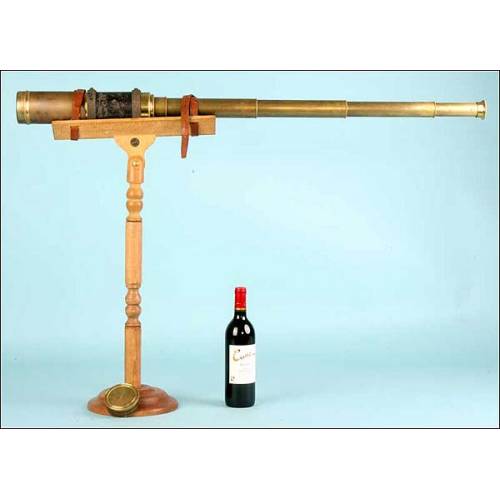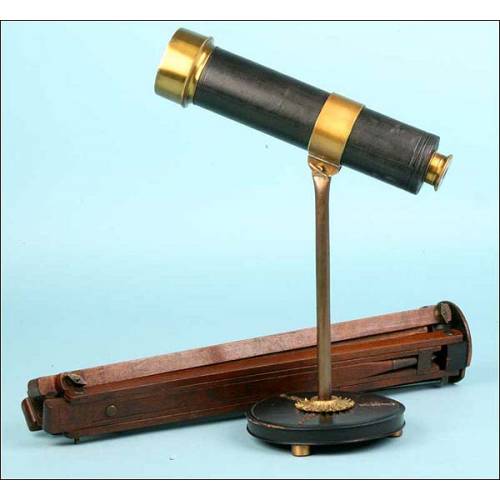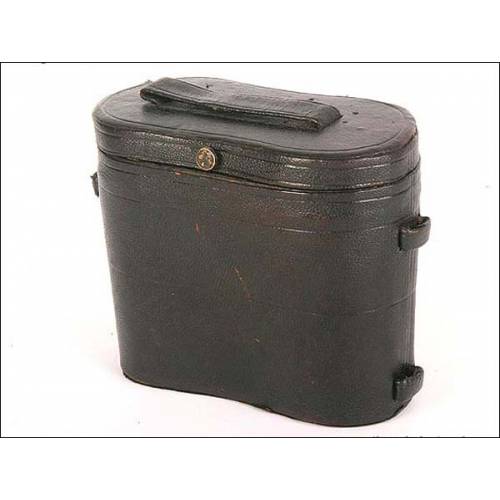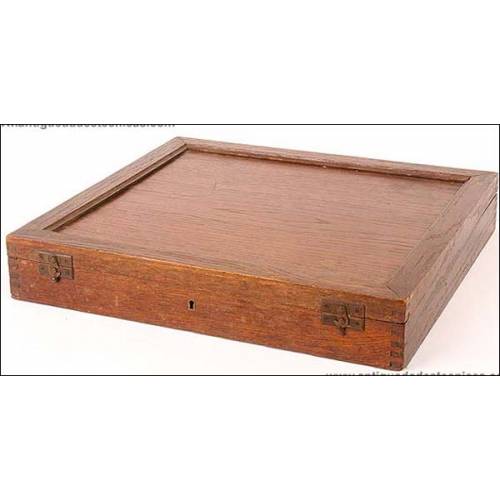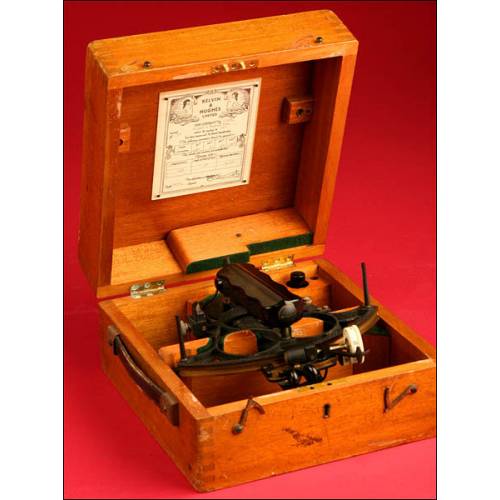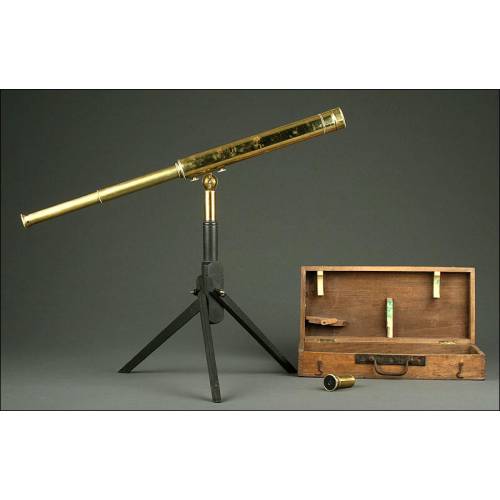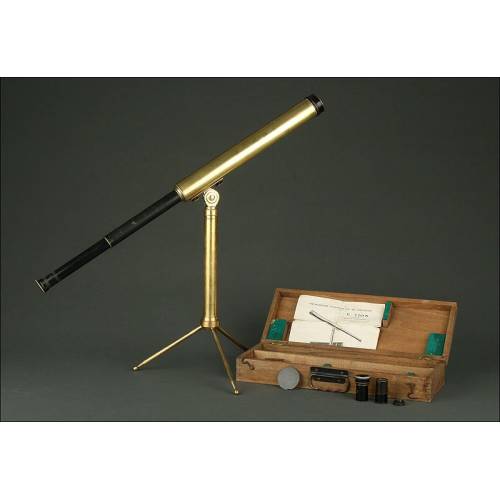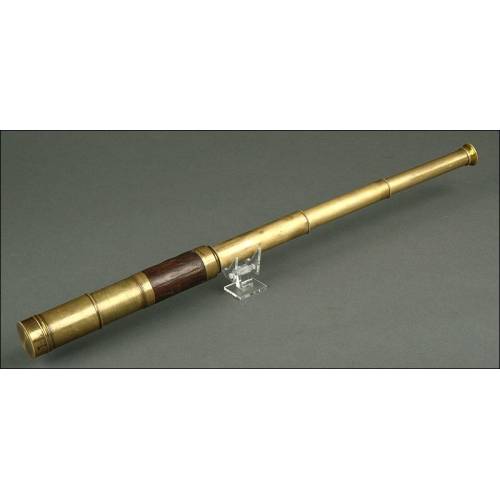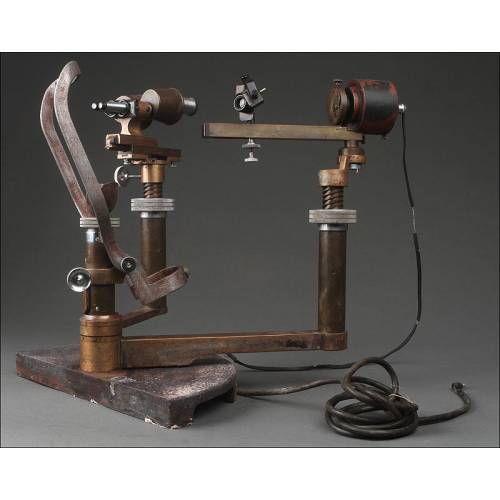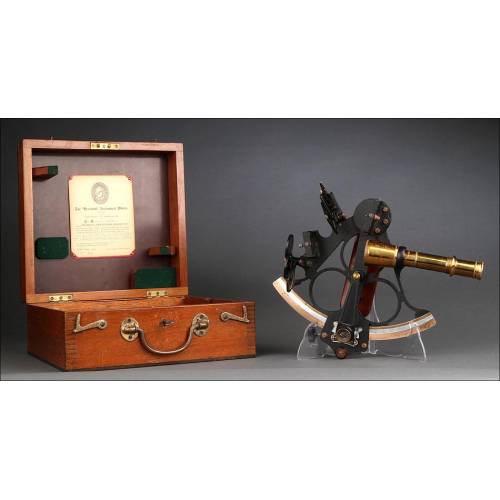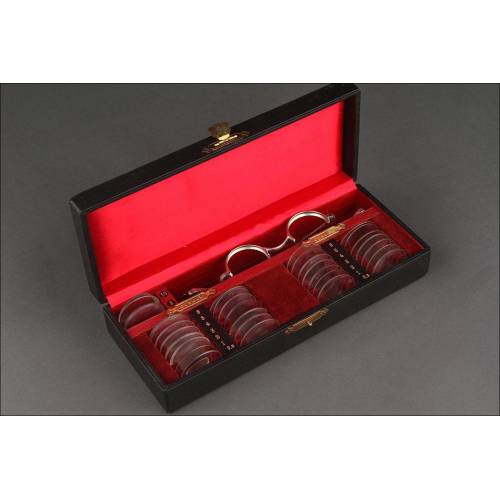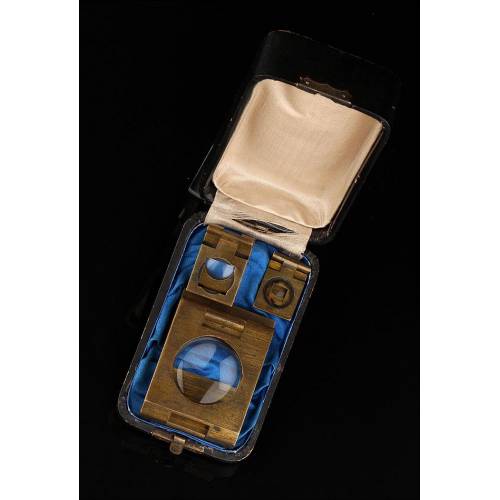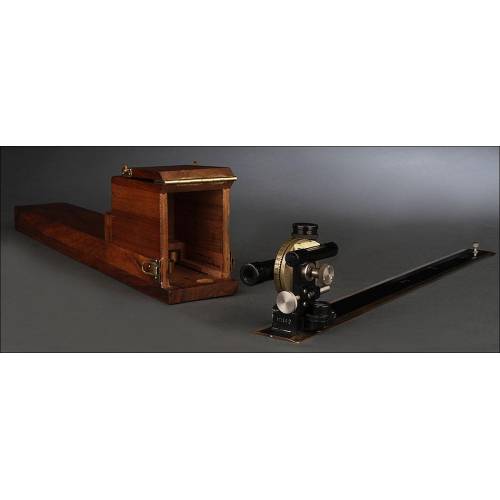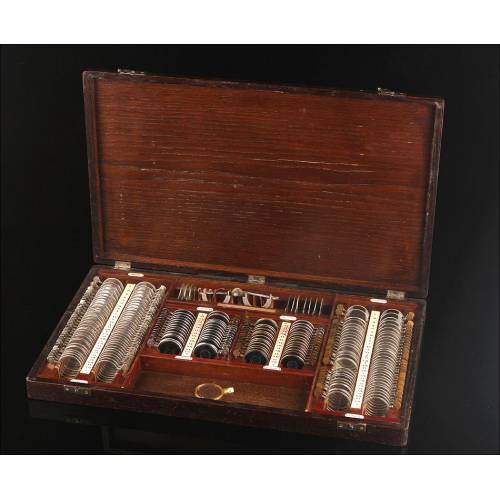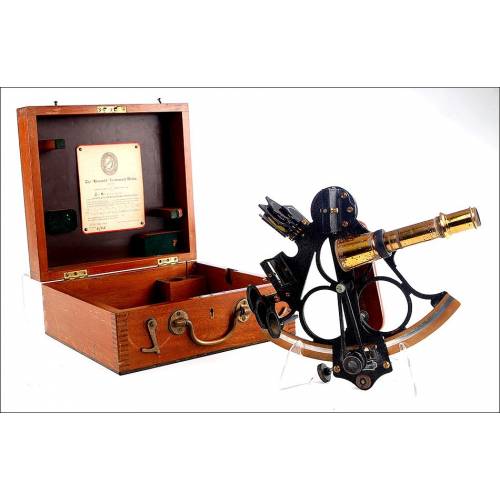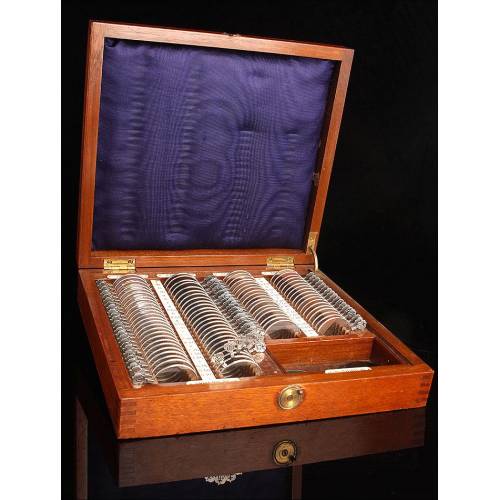B-454
Magnificent Antique Mc. Gregor Nautical Sextant in Good Condition. Scotland, 1870
Impressive Mc. Gregor Scottish sextant for nautical use with more than 140 years old.
Sold!
This amazing device from the late 19th century is a golden-brass marine sextant, made in Scotland by D. McGregor & Company around the year 1870. The sextant can still be used to determine the angle between an astronomical object and the horizon. It has a small antique repair, a tiny silver solder in the lens rod; nevertheless, this detail is scarcely visible and the piece is in great condition. The sextant comes in its original mahogany wooden case and with the original seller/reparation place label inside. The metal this piece is made of is in good condition and boasts the patina created by many years in the middle of the ocean. This detail provides the sextant with a very special interest. The graduated arch bears a fine hand-engraved inscription in cursive lettering. It refers to the company that manufactured the sextant: D. McGregor Glasgow & Greenock. Duncan McGregor started a business in 1844 to manufacture nautical instruments and chronometers (as well as to sell charts) in Glasgow. The workshop was located in 24 Clyde Place. With the trace of time, he also opened shops in Greenock and Liverpool. This lovely sextant is a good example of the quality and precision of McGregor instruments, as it is both a functional and beautiful piece. Al the sextants component parts are original: the alidade, the filter, the arch, the eyepiece, the regulating screws They can all be easily unfolded, moved and operated. As for the storing case, it is made of solid mahogany wood this noble specie was frequently used at sea for its great wear-resistance. Inside the cases cover we can see the remains of a paper label and a complete label with the name of a workshop for the manufacture and reparation of nautical instruments, located in Calcutta. (India) This sextant is surely an evocative item that transports us to faraway lands and legendary sea crossings. It is a very special article, perfect to dress a charming corner.

